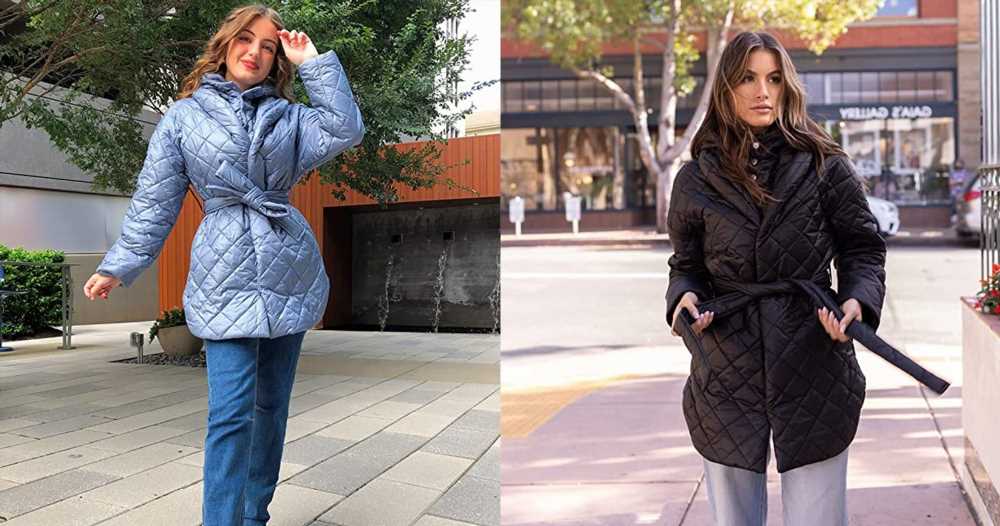Italian-American singer Gwen Stefani, 53, repeatedly insists ‘she’s JAPANESE’ in interview with stunned Asian writer – despite having NO ethnic ties to Asia – sparking the latest in a line of cultural appropriation controversies
- Gwen Stefani has defended her Harajuku era again, despite previously sparking accusations of cultural appropriation of Asian culture for her personal gain
- During a new interview, she raised eyebrows as she repeatedly insisted she was Japanese
- As the daughter of an Italian-American father and Irish-American mother, the singer, 53, has no ethnic ties to the country
- Stefani said after visiting Tokyo for the first time, she said: ‘My God, I’m Japanese and I didn’t know it’
Gwen Stefani has defended her Harajuku era yet again, despite previously sparking accusations of cultural appropriation of Asian culture for her personal gain.
While speaking about her now-controversial Harajuku Lovers fragrance line, which launched in 2008, and frequent use of Japan’s subculture over the years, the singer, 53, raised eyebrows as she repeatedly insisted she was Japanese.
Despite having no ethnic ties to the country as the daughter of an Italian-American father and Irish-American mother, the performer claimed to identify as part Asian.
No regrets: Gwen Stefani has defended her Harajuku era yet again, despite previously sparking accusations of cultural appropriation of Asian culture for her personal gain; seen in 2004
During an interview with Allure, Jesa Marie Calaor asked the performer what she learned from creating the Harajuku Lovers brand, ‘considering its praise, backlash, and everything in between.’
Speaking to the brand’s inspirations, she told the interviewer: ‘That was my Japanese influence and that was a culture that was so rich with tradition, yet so futuristic [with] so much attention to art and detail and discipline and it was fascinating to me.’
Additionally, the mom-of-three reflected on how after years of hearing her dad recall his work trips to Japan as a Yamaha marketing executive, visiting Tokyo herself felt like home.
Sparking backlash: While speaking about her now-controversial Harajuku Lovers fragrance line, which launched in 2008, and frequent use of Japan’s subculture over the years, the singer, 53, raised eyebrows as she repeatedly insisted she was Japanese
‘I said, “My God, I’m Japanese and I didn’t know it,”‘ Stefani raved.
When the author, who is Filipina, noted a bit of awkwardness ‘in the air between’ them, Stefani, said: ‘I am, you know.’
She then proceeded to note that there is ‘innocence’ to her love of Japanese culture.
The self-proclaimed ‘super fan’ of Japan said it ‘doesn’t feel right’ to her when she receives criticism for being an admirer ‘of something beautiful and sharing that.’
Bizarre claims: Despite having no ethnic ties to the country as the daughter of an Italian-American father and Irish-American mother, the performer claimed to identify as part Asian; pictured in 2006
‘I think it was a beautiful time of creativity… a time of the ping-pong match between Harajuku culture and American culture,’ the Hollaback Girl continued.
The wife of country star, Blake Shelton, then asked: ‘[It] should be okay to be inspired by other cultures because if we’re not allowed then that’s dividing people, right?’
Additionally, Stefani said she was influenced by the Hispanic and Latinx communities of her hometown of Anaheim, California.
Controversial: The mom-of-three marveled that after years of hearing her dad recall his work trips to Japan as a Yamaha marketing executive, visiting Tokyo herself felt like home
‘The music, the way the girls wore their makeup, the clothes they wore, that was my identity,’ she explained. ‘Even though I’m an Italian American — Irish or whatever mutt that I am — that’s who I became because those were my people, right?’
While the interviewer said she doesn’t believe ‘Stefani was trying to be malicious or hurtful in making these statements,’ they did cause her to feel ‘unsettled.’
Calaor pointed out the former The Voice judge ‘asserted twice that she was Japanese and once that she was “a little bit of an Orange County girl, a little bit of a Japanese girl, a little bit of an English girl”‘ during their chat.
In 2021, Stefani touched on the criticism she received in her career when she faced claims of cultural appropriation around her 2004 solo album Love. Angel. Music. Baby. during an interview with Paper magazine.
Awkward: While the interviewer said she doesn’t believe ‘Stefani was trying to be malicious or hurtful in making these statements,’ they did cause her to feel ‘unsettled’
During this time, she was often accompanied by Japanese-American backup dancers called the Harajuku Girls.
Gwen pondered in the interview: ‘If we didn’t buy and sell and trade our cultures in, we wouldn’t have so much beauty, you know? We learn from each other, we share from each other, we grow from each other.
‘And all these rules are just dividing us more and more… I think that we grew up in a time where we didn’t have so many rules. We didn’t have to follow a narrative that was being edited for us through social media, we just had so much more freedom.’
While in the rock band, No Doubt, in the 80s and 90s, she frequently wore a bindi, which are traditionally worn by Hindu women (seen in 1997)
Culture appropriation: Additionally, she has landed in hot water for wearing cornrows (pictured in 2000)
Last year, the former the three-time Grammy winner got slammed for appropriating Black culture while wearing dreadlocks and the colors of the Jamaican flag.
While in the rock band, No Doubt, in the 80s and 90s, she frequently wore a bindi, which are worn by Hindu women.
She has since stated that she wore bindis and saris as a ‘cultural exchange with her bandmate Tony Kanal, who is Indian-American,’ according to Page Six.
In 2019, the musician admitted to feeling ‘a little defensive’ when people refer to her Harajuku era as culture appropriation.
‘You take pride in your culture and have traditions, and then you share them for new things to be created,’ she told Billboard.
‘If we didn’t buy and sell and trade our cultures in, we wouldn’t have so much beauty, you know? We learn from each other, we share from each other, we grow from each other,’ she asked in 2021
Source: Read Full Article









